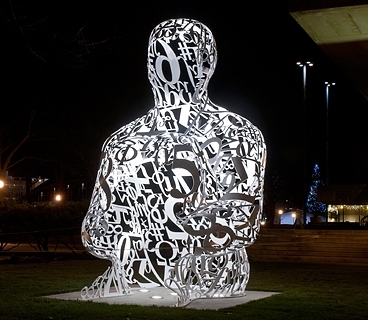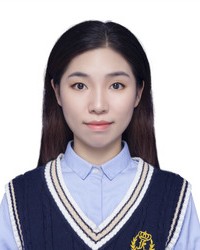
COM3-02-52
13 Computing Drive
Singapore 117417



Zekun Shi, Zheyuan Hu, Min Lin and Kenji Kawaguchi. Stochastic Taylor Derivative Estimator: Efficient amortization for arbitrary differential operators. In Advances in Neural Information Processing Systems (NeurIPS), 2024.
[pdf] [BibTeX] [Received the Best Paper Award at NeurIPS 2024]
Qianli Shen, Yezhen Wang, Zhouhao Yang, Xiang Li, Haonan Wang, Yang Zhang, Jonathan Scarlett, Zhanxing Zhu and Kenji Kawaguchi. Memory-Efficient Gradient Unrolling for Large-Scale Bi-level Optimization. In Advances in Neural Information Processing Systems (NeurIPS), 2024.
[pdf] [BibTeX]
Yiran Zhao, Wenyue Zheng, Tianle Cai, Do Xuan Long, Kenji Kawaguchi, Anirudh Goyal and Michael Shieh. Accelerating Greedy Coordinate Gradient and General Prompt Optimization via Probe Sampling. In Advances in Neural Information Processing Systems (NeurIPS), 2024.
[pdf] [BibTeX]
Yiran Zhao, Wenxuan Zhang, Guizhen Chen, Kenji Kawaguchi and Lidong Bing. How do Large Language Models Handle Multilingualism?. In Advances in Neural Information Processing Systems (NeurIPS), 2024.
[pdf] [BibTeX]
Haonan Wang, Qianli Shen, Yao Tong, Yang Zhang and Kenji Kawaguchi. The Stronger the Diffusion Model, the Easier the Backdoor: Data Poisoning to Induce Copyright Breaches Without Adjusting Finetuning Pipeline. International Conference on Machine Learning (ICML), 2024.
[pdf] [BibTeX] [Selected for ICML oral presentation]
Shihao Zhang, Kenji Kawaguchi and Angela Yao. Deep Regression Representation Learning with Topology. International Conference on Machine Learning (ICML), 2024.
[pdf] [BibTeX]
Seul Lee, Seanie Lee, Kenji Kawaguchi and Sung Ju Hwang. Drug Discovery with Dynamic Goal-aware Fragments. International Conference on Machine Learning (ICML), 2024.
[pdf] [BibTeX]
Chang Chen, Junyeob Baek, Fei Deng, Kenji Kawaguchi, Caglar Gulcehre and Sungjin Ahn. PlanDQ: Hierarchical Plan Orchestration via D-Conductor and Q-Performer. International Conference on Machine Learning (ICML), 2024.
[pdf] [BibTeX]
Brian K Chen, Tianyang Hu, Hui Jin, Hwee Kuan Lee and Kenji Kawaguchi. Exact Conversion of In-Context Learning to Model Weights in Linearized-Attention Transformers. International Conference on Machine Learning (ICML), 2024.
[pdf] [BibTeX]
Jiajun Ma, Shuchen Xue, Tianyang Hu, Wenjia Wang, Zhaoqiang Liu, Zhenguo Li, Zhi-Ming Ma and Kenji Kawaguchi. The Surprising Effectiveness of Skip-Tuning in Diffusion Sampling. International Conference on Machine Learning (ICML), 2024.
[pdf] [BibTeX]
Xuantong Liu, Tianyang Hu, Wenjia Wang, Kenji Kawaguchi and Yuan Yao. Referee Can Play: An Alternative Approach to Conditional Generation via Model Inversion. International Conference on Machine Learning (ICML), 2024.
[pdf] [BibTeX]
Md Rifat Arefin, Yan Zhang, Aristide Baratin, Francesco Locatello, Irina Rish, Dianbo Liu and Kenji Kawaguchi. Unsupervised Concept Discovery Mitigates Spurious Correlations. International Conference on Machine Learning (ICML), 2024.
[pdf] [BibTeX]
Xiang Li*, Qianli Shen* and Kenji Kawaguchi. VA3: Virtually Assured Amplification Attack on Probabilistic Copyright Protection for Text-to-Image Generative Models. Computer Vision and Pattern Recognition Conference (CVPR), 2024.
[pdf] [BibTeX]
Sihang Li, Zhiyuan Liu, Yanchen Luo, Xiang Wang, Xiangnan He, Kenji Kawaguchi, Tat-Seng Chua and Qi Tian. Towards 3D Molecule-Text Interpretation in Language Models. In International Conference on Learning Representations (ICLR), 2024.
[pdf] [BibTeX]
Chang Chen, Fei Deng, Kenji Kawaguchi, Caglar Gulcehre and Sungjin Ahn. Simple Hierarchical Planning with Diffusion. In International Conference on Learning Representations (ICLR), 2024.
[pdf] [BibTeX]
Yingtian Zou, Kenji Kawaguchi, Yingnan Liu, Jiashuo Liu, Mong-Li Lee and Wynne Hsu. Towards Robust Out-of-Distribution Generalization Bounds via Sharpness. In International Conference on Learning Representations (ICLR), 2024.
[pdf] [BibTeX]
Juncheng Liu, Bryan Hooi, Kenji Kawaguchi, Yiwei Wang, Chaosheng Dong and Xiaokui Xiao. Scalable and Effective Implicit Graph Neural Networks on Large Graphs. In International Conference on Learning Representations (ICLR), 2024. In International Conference on Learning Representations (ICLR), 2024.
[pdf] [BibTeX]
Dong Bok Lee, Seanie Lee, Joonho Ko, Kenji Kawaguchi, Juho Lee and Sung Ju Hwang. Self-Supervised Dataset Distillation for Transfer Learning. In International Conference on Learning Representations (ICLR), 2024.
[pdf] [BibTeX]
Xuan Long Do, Yiran Zhao, Hannah Brown, Yuxi Xie, James Xu Zhao, Nancy F Chen, Kenji Kawaguchi, Michael Qizhe Xie and Junxian He. Prompt Optimization via Adversarial In-Context Learning. Annual Meeting of the Association for Computational Linguistics (ACL), 2024.
[pdf] [BibTeX]
Zhiyuan Liu, An Zhang, Hao Fei, Enzhi Zhang, Xiang Wang, Kenji Kawaguchi and Tat-Seng Chua. ProtT3: Protein-to-Text Generation for Text-based Protein Understanding. Annual Meeting of the Association for Computational Linguistics (ACL), 2024.
[pdf] [BibTeX]
Zhiyuan Liu, Yaorui Shi, An Zhang, Sihang Li, Enzhi Zhang, Xiang Wang, Kenji Kawaguchi and Tat-Seng Chua. ReactXT: Understanding Molecular "Reaction-ship" via Reaction-Contextualized Molecule-Text Pretraining. In Findings of the Association for Computational Linguistics (Findings of ACL), 2024.
[pdf] [BibTeX]
Yang Zhang, Teoh Tze Tzun, Lim Wei Hern, Tiviatis Sim and Kenji Kawaguchi. Enhancing Semantic Fidelity in Text-to-Image Synthesis: Attention Regulation in Diffusion Models. European Conference on Computer Vision (ECCV), 2024.
[pdf] [BibTeX]
Kenji Kawaguchi*, Zhun Deng*, Xu Ji*, Jiaoyang Huang. How Does Information Bottleneck Help Deep Learning? International Conference on Machine Learning (ICML), 2023.
[pdf] [BibTeX]
Yingtian Zou*, Vikas Verma*, Sarthak Mittal, Wai Hoh Tang, Hieu Pham, Juho Kannala, Yoshua Bengio, Arno Solin, Kenji Kawaguchi. MixupE: Understanding and improving mixup from directional derivative perspective. Uncertainty in Artificial Intelligence (UAI), 2023.
[pdf] [BibTeX] [Received the Best Student Paper Award of UAI 2023]
Qianli Shen, Wai Hoh Tang, Zhun Deng, Apostolos Psaros, Kenji Kawaguchi. PICProp: Physics-Informed Confidence Propagation for Uncertainty Quantification. In Advances in Neural Information Processing Systems (NeurIPS), 2023.
[pdf] [BibTeX]
Yuxi Xie, Kenji Kawaguchi, Yiran Zhao, Xu Zhao, Min-Yen Kan, Junxian He, Qizhe Xie. Self-evaluation guided beam search for reasoning. In Advances in Neural Information Processing Systems (NeurIPS), 2023.
[pdf] [BibTeX]
Zhiyuan Liu, Yaorui Shi, An Zhang, Enzhi Zhang, Kenji Kawaguchi, Xiang Wang, Tat-Seng Chua. Rethinking Tokenizer and Decoder in Masked Graph Modeling for Molecules. In Advances in Neural Information Processing Systems (NeurIPS), 2023.
[pdf] [BibTeX]
Minki Kang, Seanie Lee, Jinheon Baek, Kenji Kawaguchi, Sung Ju Hwang. Knowledge-Augmented Reasoning Distillation for Small Language Models in Knowledge-Intensive Tasks. In Advances in Neural Information Processing Systems (NeurIPS), 2023.
[pdf] [BibTeX]
Ravid Shwartz-Ziv, Randall Balestriero, Kenji Kawaguchi, Tim G. J. Rudner, Yann LeCun. An Information Theory Perspective on Variance-Invariance-Covariance Regularization. In Advances in Neural Information Processing Systems (NeurIPS), 2023.
[pdf] [BibTeX]
Dianbo Liu, Moksh Jain, Bonaventure F. P. Dossou, Qianli Shen, Salem Lahlou, Anirudh Goyal, Nikolay Malkin, Chris Chinenye Emezue, Dinghuai Zhang, Nadhir Hassen, Xu Ji, Kenji Kawaguchi and Yoshua Bengio.
GFlowOut: Dropout with Generative Flow Networks. International Conference on Machine Learning (ICML), 2023.
[pdf] [BibTeX]
Frederik Träuble, Anirudh Goyal, Nasim Rahaman, Michael Curtis Mozer, Kenji Kawaguchi, Yoshua Bengio, Bernhard Schölkopf. Discrete Key-Value Bottleneck. International Conference on Machine Learning (ICML), 2023.
[pdf] [BibTeX]
Jeffrey Willette, Seanie Lee, Bruno Andreis, Kenji Kawaguchi, Juho Lee, Sung Ju Hwang. Scalable Set Encoding with Universal Mini-Batch Consistency and Unbiased Full Set Gradient Approximation.
International Conference on Machine Learning (ICML), 2023.
[pdf] [BibTeX]
Aviv Shamsian, Aviv Navon, Neta Glazer, Kenji Kawaguchi, Gal Chechik, Ethan Fetaya. Auxiliary Learning as an Asymmetric Bargaining Game.
International Conference on Machine Learning (ICML), 2023.
[pdf] [BibTeX]
Seanie Lee, Minki Kang, Juho Lee, Sung Ju Hwang, Kenji Kawaguchi. Self-Distillation for Further Pre-training of Transformers. In International Conference on Learning Representations (ICLR), 2023.
[pdf] [BibTeX]
Samuel Lavoie, Christos Tsirigotis, Max Schwarzer, Ankit Vani, Michael Noukhovitch, Kenji Kawaguchi, Aaron Courville. Simplicial Embeddings in Self-Supervised Learning and Downstream Classification. In International Conference on Learning Representations (ICLR), 2023.
[pdf] [BibTeX] [notable-top-25%]
Tianbo Li, Min Lin, Zheyuan Hu, Kunhao Zheng, Giovanni Vignale, Kenji Kawaguchi, A.H. Castro Neto, Kostya S. Novoselov and Shuicheng YAN. D4FT: A Deep Learning Approach to Kohn-Sham Density Functional Theory. In International Conference on Learning Representations (ICLR), 2023.
[pdf] [BibTeX] [notable-top-25%]
Dong Bok Lee, Seanie Lee, Kenji Kawaguchi, Yunji Kim, Jihwan Bang, Jung-Woo Ha and Sung Ju Hwang. Self-Supervised Set Representation Learning for Unsupervised Meta-Learning. In International Conference on Learning Representations (ICLR), 2023.
[pdf] [BibTeX]
Zhiyuan Liu, Sihang Li, Yanchen Luo, Hao Fei, Yixin Cao, Kenji Kawaguchi, Xiang Wang, Tat-Seng Chua. MolCA: Molecular Graph-Language Modeling with Cross-Modal Projector and Uni-Modal Adapter. In Empirical Methods in Natural Language Processing (EMNLP), 2023.
[pdf] [BibTeX]
Xu Zhao, Yuxi Xie, Kenji Kawaguchi, Junxian He, Qizhe Xie. Automatic Model Selection with Large Language Models for Reasoning. In Findings of Empirical Methods in Natural Language Processing (Findings of EMNLP), 2023.
[pdf] [BibTeX]
Kenji Kawaguchi, Zhun Deng, Kyle Luh, Jiaoyang Huang. Robustness Implies Generalization via Data-Dependent Generalization Bounds. International Conference on Machine Learning (ICML), 2022.
[pdf] [BibTeX] [Selected for ICML long presentation (2% accept rate)]
Aviv Navon, Aviv Shamsian, Idan Achituve, Haggai Maron, Kenji Kawaguchi, Gal Chechik, Ethan Fetaya. Multi-Task Learning as a Bargaining Game. International Conference on Machine Learning (ICML), 2022.
[pdf] [BibTeX]
Linjun Zhang*, Zhun Deng*, Kenji Kawaguchi, James Zou. When and How Mixup Improves Calibration. International Conference on Machine Learning (ICML), 2022.
[pdf] [BibTeX]
Kenji Kawaguchi. On the Theory of Implicit Deep Learning: Global Convergence with Implicit Layers.
In International Conference on Learning Representations (ICLR), 2021.
[pdf] [BibTeX] [Selected for ICLR Spotlight (5% accept rate)]
Linjun Zhang*, Zhun Deng*, Kenji Kawaguchi*, Amirata Ghorbani and James Zou. How Does Mixup Help With Robustness and Generalization?
In International Conference on Learning Representations (ICLR), 2021.
[pdf] [BibTeX] [Selected for ICLR Spotlight (5% accept rate)]